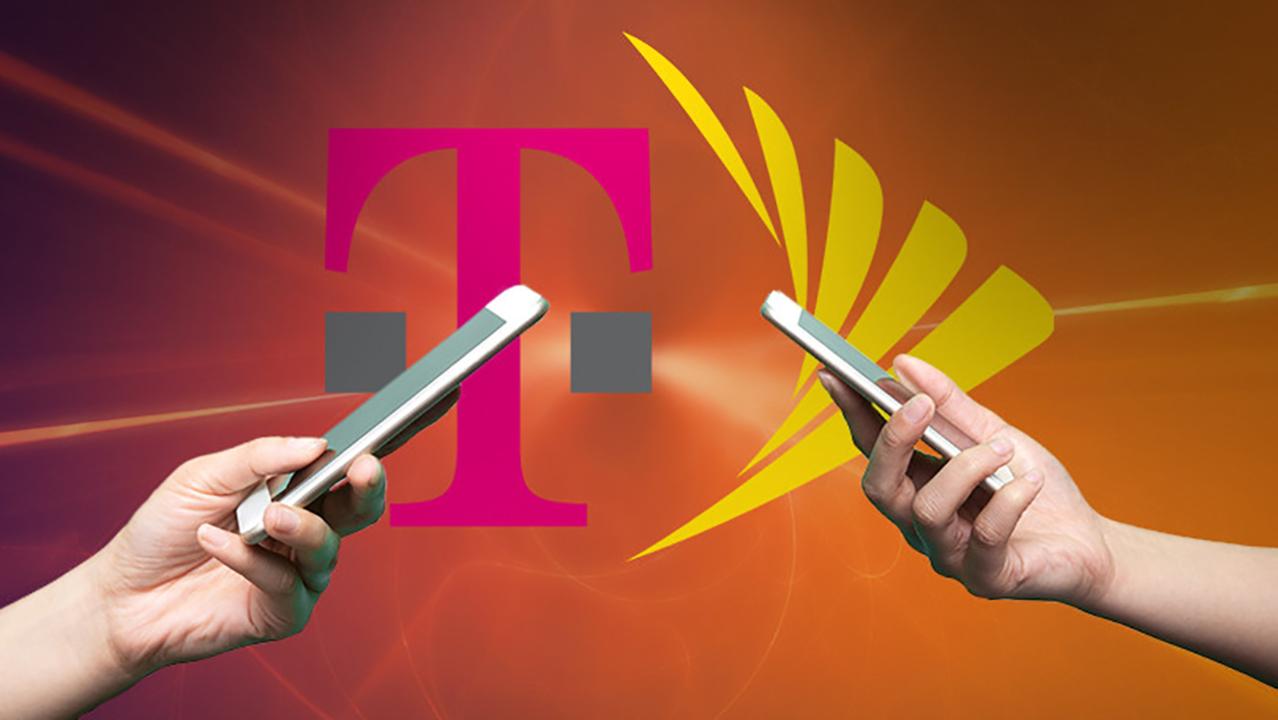If T-Mobile, Sprint merger is OK'd, consumers win
After getting the nod from Federal Communications Commission Chairman Ajit Pai last week, the final hurdle in front of the proposed merger between Sprint and T-Mobile is the Justice Department’s antitrust division.
Justice Department officials have reportedly recommended rejection of the $26 billion deal that would combine the No. 3 and No. 4 telecoms. But blocking the merger would be a mistake.
As part of the FCC’s approval process, Sprint submitted a financial analysis of itself conducted by independent agents. Absent the merger, the analysis found that Sprint faces “fundamental problems” as a standalone company and “is unlikely to be an effective competitor going forward.”
If the Justice Department blocks the deal, Sprint and T-Mobile wouldn’t be the only losers. Consumers would be, too.
The Justice Department’s strongest objection seems to be over competition. Allowing Sprint and T-Mobile to merge would reduce the number of major telecom companies from four to three (Verizon and AT&T being the other two). Theoretically, a smaller number of firms in a market means less competition, fewer incentives to offer better services, and reduced downward pressure on prices — in short, less consumer welfare.
This principle is a good guide generally, but it’s not infallible truth. To the contrary, consumers stand to benefit from fewer firms in telecommunications. Here’s why.
Vicious cycle
Sprint’s recent filing with the FCC makes one point clear: Sprint is weaker than it appears. The company has aggressively expanded its subscriber rolls in recent years, but that expansion has come at a cost. On closer inspection, Sprint is jogging. Tiredly.
According to the FCC filing, Sprint has inflated its rolls by including both less valuable non-phone devices like tablets and “migrations” of customers from prepaid to postpaid, i.e., customers that aren’t strictly speaking “new.”
Additionally, part of Sprint’s expansion strategy included giving customers “free lines.” For a time, Sprint was offering free service with unlimited data for one year so long as customers provided their own devices.
These deals have been great for adding customers but less good for building capital. As a result, Sprint has fallen behind on infrastructure investment, and its service has suffered.
“Sprint’s network shortcomings result in degraded customer experiences and perception, which in turn lead to customer churn,” the FCC filing says. “Churn, in turn, leads to fewer subscribers, decreased revenues, and negative cash flows.”
Less cash has precipitated further cuts to investment spending, worse service, and more customer “churn.” And so, in the words of the FCC filing, the “vicious cycle” continues. Sprint’s investment challenge is a massive liability, especially as the telecommunications’ industry shifts toward 5th generation wireless technology, or 5G.
Verizon and AT&T have already launched limited 5G services. T-Mobile will follow later this year. While Sprint’s launch is expected at the end of May, its service will be noticeably slower than its competitors and will cover less ground. As the 5G race heats up, expect Sprint to fall further behind.
| Ticker | Security | Last | Change | Change % |
|---|---|---|---|---|
| VZ | VERIZON COMMUNICATIONS INC. | 46.29 | -0.77 | -1.64% |
| T | AT&T INC. | 27.13 | -0.18 | -0.66% |
| S | SENTINELONE INC | 13.22 | +0.29 | +2.24% |
| TMUS | T-MOBILE US INC. | 197.39 | -4.47 | -2.21% |
Less is more
In theory, telecommunications is a race between four giants: Verizon, AT&T, T-Mobile and Sprint. In practice, though, the first two are outstripping the second two, especially in regard to 5G. Once 5G becomes the industry standard, it’s tough to see how Sprint will remain competitive.
That concern goes away if Sprint and T-Mobile merge. As it weighs the mergers’ merits, the Department of Justice would be wise to consider the future, then follow the FCC chief’s lead.
If regulators block the deal, Verizon and AT&T will likely dominate 5G, followed by T-Mobile in a distant third. Together, though, Sprint and T-Mobile have a shot at offering meaningful competition to their bigger telecommunication brothers.
CLICK HERE TO GET THE FOX BUSINESS APP
A greater number of firms in a market often promotes consumer-benefiting competition. The U.S. cellular telecommunications industry, however, doesn’t fit that mold. In the race for 5G, less is more.
Beau Brunson is a senior policy analyst at Consumers’ Research.




















